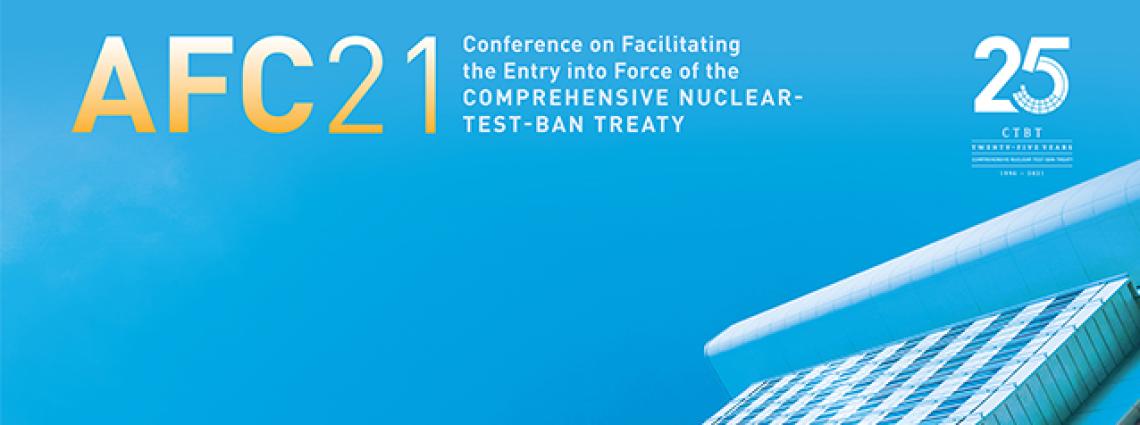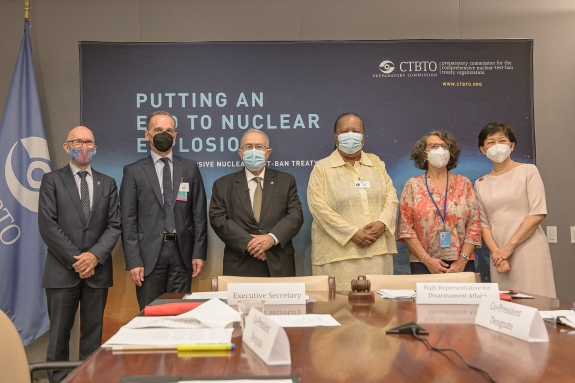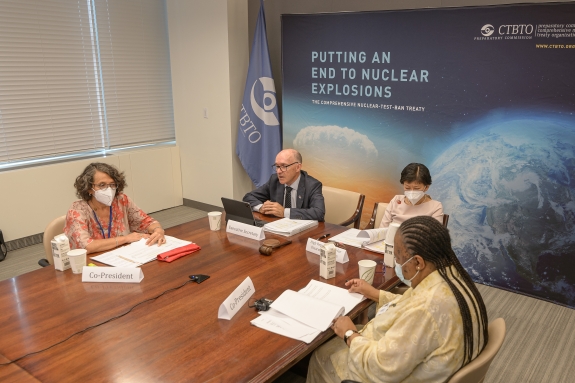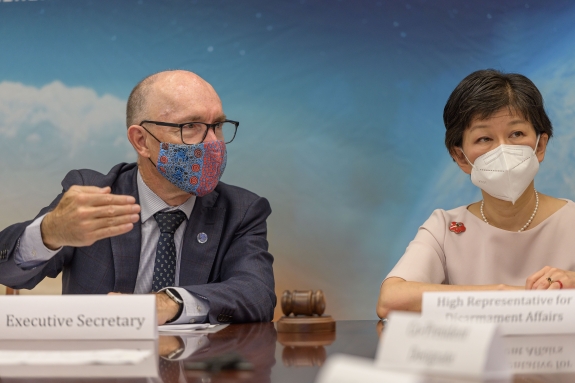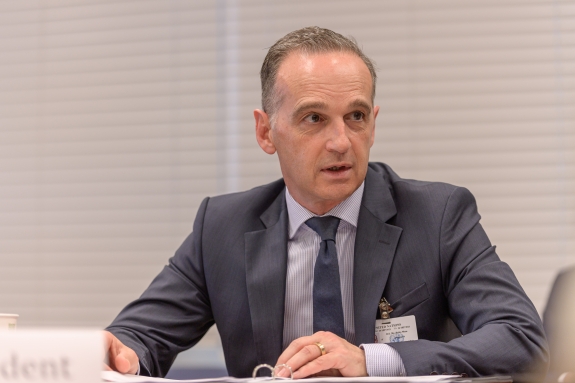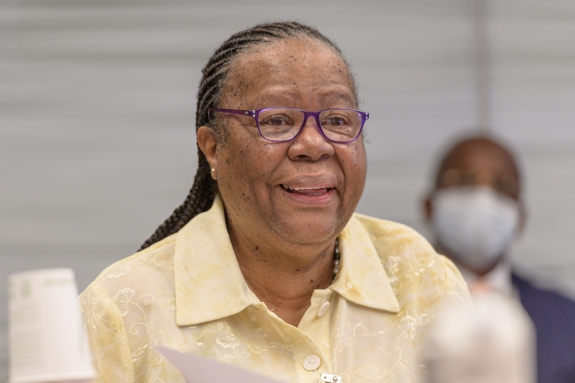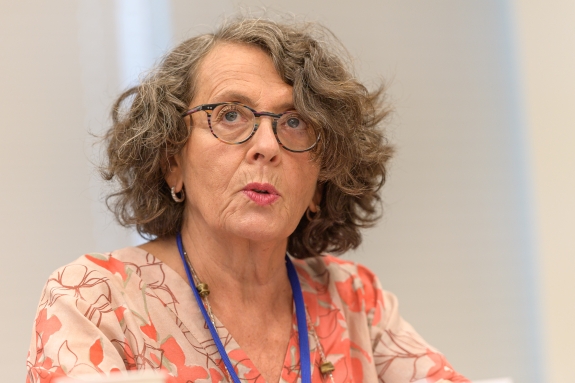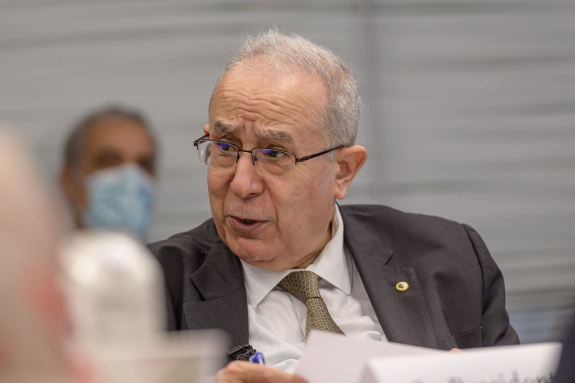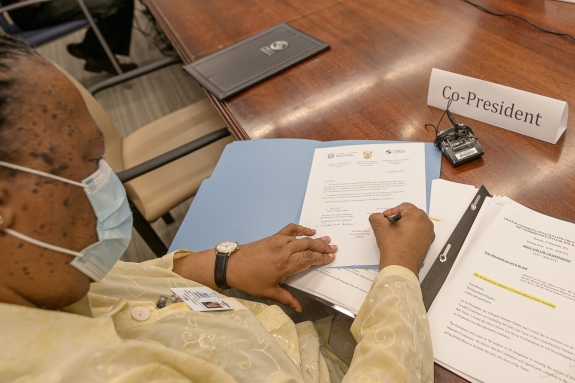Article XIV Conference mobilises global support for CTBT on 25th anniversary
Exactly 25 years after the Comprehensive Nuclear-Test-Ban Treaty (CTBT) opened for signature, the high-level Conference on Facilitating the Entry into Force of the CTBT has mobilised global calls for it to become binding and fulfil its potential to end all nuclear explosions, everywhere, for all time.
Ministers and senior officials from more than 60 countries lined up to deliver statements of strong support for the CTBT on 23-24 September, joining UN Secretary-General António Guterres, UN General Assembly President Abdulla Shahid and Comprehensive Nuclear-Test-Ban Treaty Organization (CTBTO) Executive Secretary Robert Floyd in making urgent calls for entry into force.
Although the CTBT is almost universally recognised, and its vast, highly sensitive monitoring system helps to maintain a global norm against nuclear testing, the Treaty has not yet become legally binding. To do so, it must be ratified by a further eight specific countries: China, Egypt, India, Iran, Israel, North Korea, Pakistan and the United States.
September 2021 coincides with the 25th anniversary of the CTBT. We mark this milestone by reaffirming the vital importance and urgency of the entry into force of the CTBT.
It also called on all states “to maintain all existing moratoria on nuclear weapon test explosions, while stressing that these measures do not have the same permanent and legally binding effect to end nuclear weapon testing and all other nuclear explosions, which can only be achieved with the entry into force of the Treaty.”
Guterres, in a statement delivered by the UN High Representative for Disarmament Affairs, Izumi Nakamitsu, noted that the CTBT is one of the most widely supported international instruments, with 185 signatories and 170 ratifying states.
We have remained in this state of limbo for too long. No norm or moratorium can replace a legally binding prohibition.
The UN Secretary-General repeated his call for the eight states whose ratifications are required to do so “as soon as possible”, and for other countries that have not yet signed or ratified to act without delay.
“States must take this occasion to redouble their efforts. To think creatively. And to act in the interest of the entire world’s security,” Guterres said.
Commonly known as the ‘Article XIV Conference’, after the article of the CTBT that makes provision for such an event, the Conference is held every two years to rally international support for the CTBT and its entry into force as a core element of the global nuclear non-proliferation and disarmament architecture.
This year it coincided with the 25th anniversary of the CTBT's opening for signature on 24 September 1996. The Conference, normally held at United Nations headquarters in New York during the high-level opening of the UN General Assembly, was held virtually due to the coronavirus pandemic.
In this 25th anniversary year, I urge you to take action through bilateral, regional, or multilateral initiatives to move towards universalization of the Treaty and complete its verification regime.
Floyd noted that steady progress was being made towards universal recognition of the CTBT, with two further ratifications – by Cuba and the Comoros – since the last Article XIV Conference in 2019, and further signatures and ratifications likely in the near future.
“The Treaty’s science-based verification regime has proven capable of effectively monitoring all corners of the globe for any evidence of a nuclear explosion, building trust for all. And beyond the core mission of nuclear test monitoring, the verification regime provides a virtual treasure trove of data that can be utilized for a variety of applications, such as climate change research and disaster warning and mitigation,” Floyd said.
“While these accomplishments highlight the overall success of the CTBT, the only way to secure an enduring and verifiable prohibition on nuclear testing is through its entry into force and universalization.”
The Foreign Affairs Ministers of Algeria, Ramtane Lamamra, and Germany, Heiko Maas, formally handed over the Co-Presidency of the Article XIV process to their successors: Italian Minister of Foreign Affairs Luigi Di Maio and South Africa’s Minister of International Relations and Cooperation, Naledi Pandor. Italy’s Vice Minister of Foreign Affairs, Marina Sereni, acted on Di Maio’s behalf during the opening session of the Conference.
Further information on the Article XIV Conference 2021, including full video streams of the event and the text of the Final Declaration and statements, can be found at here.
24 Sep 2021

L to R: CTBTO head Floyd; Ministers Maas (Germany), Lamamra (Algeria), Pandor (South Africa); Vice Minister Sereni (Italy); UN USG Nakamitsu.
Chairing the Conference virtually from Vienna.
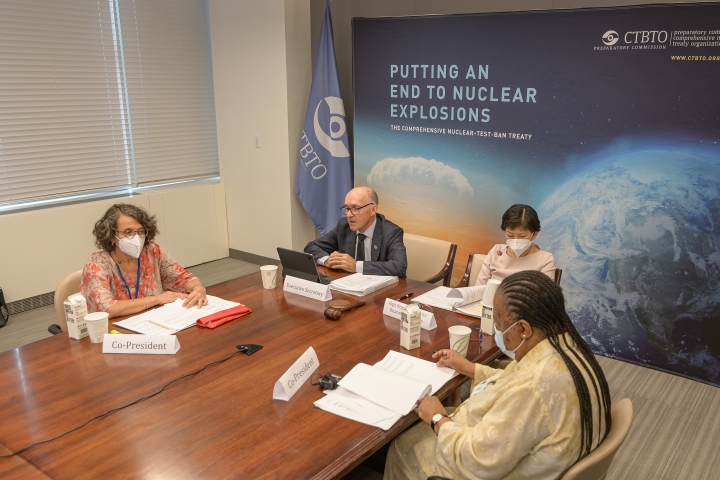

CTBTO head Robert Floyd and UN High Representative for Disarmament Affairs Izumi Nakamitsu.
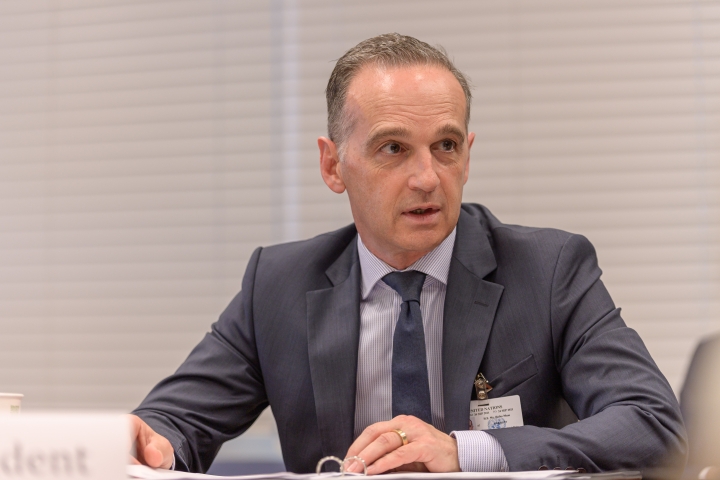
German Foreign Affairs Minister Heiko Maas.
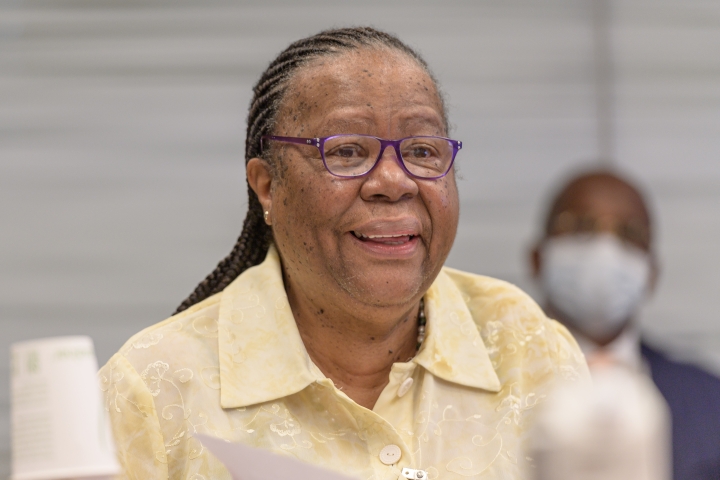
South Africa’s Minister of International Relations and Cooperation, Naledi Pandor.
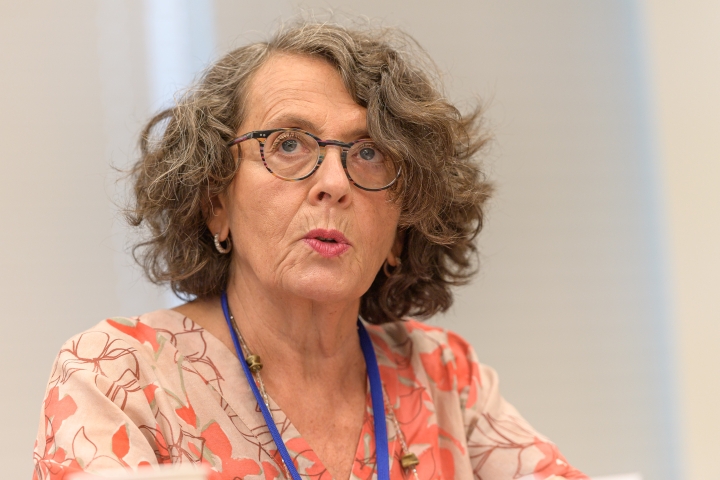
Italy’s Vice Minister of Foreign Affairs, Marina Sereni.
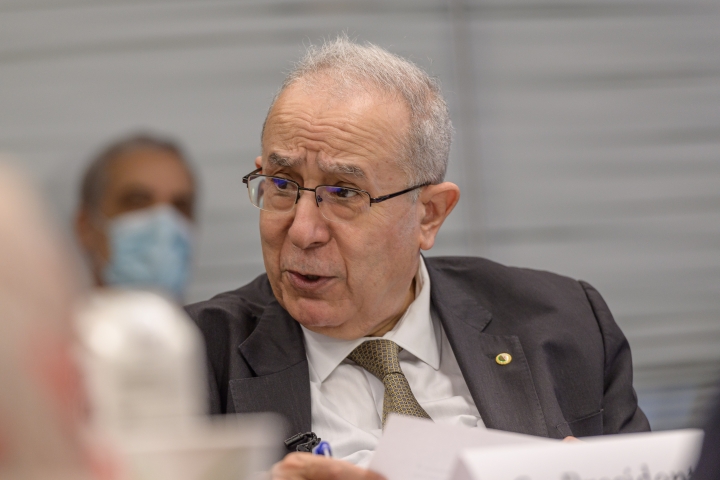
Algerian Foreign Affairs Minister Ramtane Lamamra.
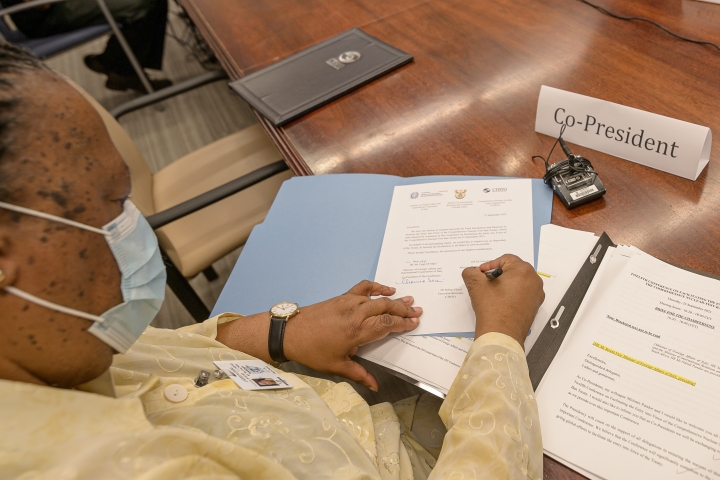
Minister Pandor signs the Final Declaration.
